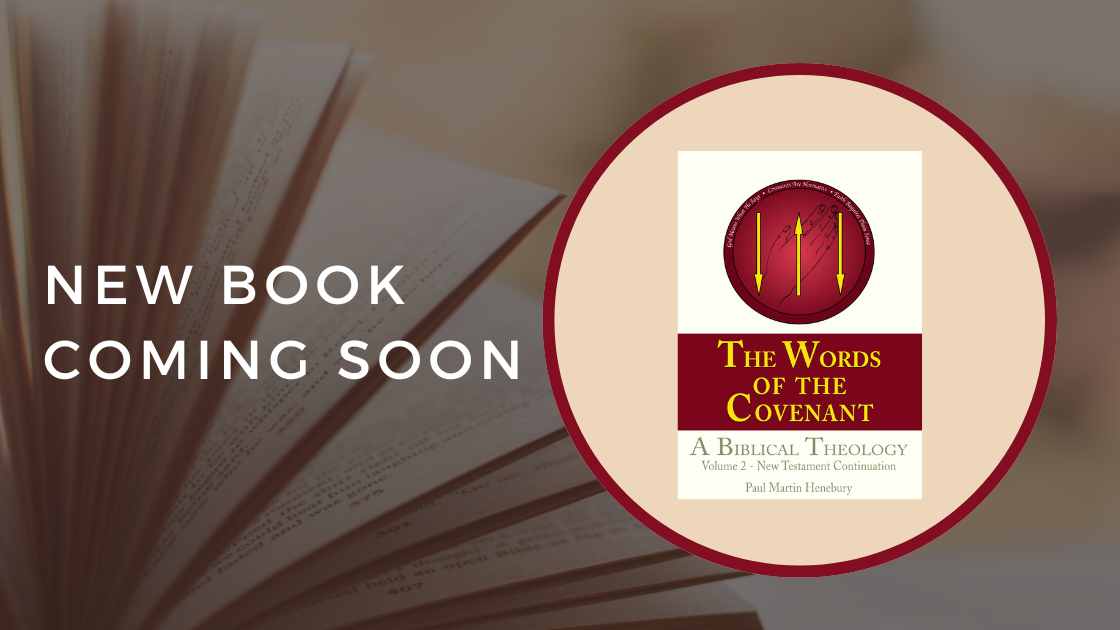Bridging the portentous chapter 28 and the hopeful chapter 30, Deuteronomy 29 contains what is often referred to, especially in Dispensational literature, as ‘the Palestinian covenant.’[1] Clearly the way the chapter begins must be taken seriously:
These are the words of the covenant which the LORD commanded Moses to make with the children of Israel in the land of Moab, besides the covenant which He made with them in Horeb. – Deuteronomy 29:1
This “other” covenant is explicitly said to be “besides” the Mosaic covenant. Taken in situ then there can be no complaint about distinguishing this covenant from the other covenants. Certainly something is going on here. Sailhamer contends that this covenant deliberately omits the necessary stipulations.[2] If I understand him right he says this points the way to the replacement of the Mosaic practices with the coming New covenant.[3]
As I have just said, the language of regeneration is prominent in this passage. So Sailhamer has a point. But I prefer to see the covenant in Deuteronomy 29:1 as a reawakening of the national consciousness to the reality of the land rooted in the Abrahamic covenant but now conditioned within the Mosaic covenant. The land is at the forefront of Moses mind but is also, of course, in the mind of all the people who are on the borders of Canaan (Deut. 29:2; 31:7; Josh. 1:11-15). Since nothing is stated in the passage which enlarges on the land promise within the Abrahamic covenant (allowing for the promise of future regeneration which is a New covenant reality), I think the covenant in Deuteronomy 29-30 is then a case of God facing a timorous people with a restatement of the work involved in claiming the promised land. If that is so, I think isolating a “Palestinian covenant” from the Abrahamic covenant is a little fruitless. The stronger claim to the land is certainly in the Abrahamic covenant in Genesis 15.
===================================
[1] Examples of this would be respected teachers like Arnold Fruchtenbaum, and Paul Benware. Benware calls the Palestinian covenant a “sub-covenant of the Abrahamic” – Paul N. Benware, Understanding End Times Prophecy, 56. Fruchtenbaum sees this covenant as predicting the regathering of Israel to their land after God Himself has regenerated them. – Arnold G. Fruchtenbaum, Israelology, 796-797. Although he lists eight provisions of the covenant, he does not find an oath. In fact, he admits that “The Palestinian Covenant is an enlargement of the original Abrahamic Covenant”, particularly the land aspect. (Ibid, 583). In view of this the present writer prefers to see Deuteronomy 29:1-30:20 as a reiteration of the land promise within the Abrahamic covenant but now in terms of the theocracy.
[2] John H. Sailhamer, The Meaning of the Pentateuch, 403-404.
[3] Ibid, 251

3 comments On An Independent Land Covenant? – A Note
This is a difficult one. My Hebrew is still poor, so, for fun, I took a look at what the LXX has there. It has the word πλήν, functioning as a preposition. The word, in this context, seems to be acting as marker denoting an exception (cf. BDAG, s.v. “5977 πλήν”). I can’t even find a way to make this word mean something like “in addition to.” Most LXX translations read “besides the covenant” (e.g. Brenton). The Lexham LXX, which is basically a dolled-up interlinear, reads, “but the covenant . . .”
The NET Bible and the NIV (obviously working from the Hebrew, not Greek!) translate it “in addition to.” Will the Hebrew allow this, or is this an interpretative stretch? The NET has no note here.
Tyler, the Hebrew word is millebad which means “Besides” or “except”. I hadn’t realized the Greek was ambiguous.
Reblogged this on Talmidimblogging.